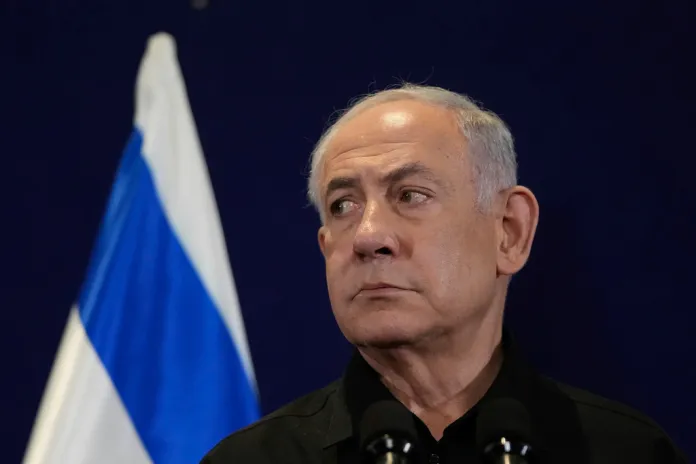US-Houthi ceasefire doesn’t end Houthi-Israel conflict
The article discusses a recent ceasefire declaration by President Donald Trump regarding the Houthi conflict in Yemen. However, this ceasefire does not extend to the Houthis’ ongoing conflict with Israel. Despite heavy U.S. military strikes against Houthi positions, which have included the targeting of over a thousand sites since March, the Houthis maintain important offensive capabilities. Houthi leaders assert that their conflict with Israel is separate from any deal with the U.S. and that they initiated attacks on Israel in solidarity with Palestinians.
U.S. Defense secretary Pete Hegseth highlighted that the aim of the military operation is to secure freedom of navigation in regions affected by Houthi attacks; yet there is skepticism over whether shipping companies will resume their operations due to ongoing threats. Recent missile attacks by Houthis targeting Israel, including one that hit near Ben Gurion Airport, emphasize Israel’s vulnerabilities despite its advancements in missile defense.
Experts express concerns over the Houthis’ ability to withstand military actions, suggesting that Israel may need to adopt more forceful measures to neutralize the threat, especially from Iranian proxies.The article concludes by noting that the U.S.is also engaged in negotiations with Iran regarding a nuclear agreement, adding another layer to the complex geopolitical situation in the region.
Houthi ‘capitulation’ against US doesn’t end Israel conflict
The U.S.-Houthi ceasefire that President Donald Trump announced on Tuesday does not include the intensifying conflict between the Iranian-backed proxy and Israel.
The U.S. military has hit more than a thousand targets across Yemen and lost two F-18 fighter aircraft at sea since it commenced its aerial campaign against the Houthis on March 15. Despite the significant number of targets hit, the Houthis still have offensive capabilities.
While the president said the Houthis “don’t want to fight anymore” and “have capitulated,” Houthi leaders said their conflict with Israel is unrelated to the deal between themselves and the United States.
Defense Secretary Pete Hegseth said the operation against the Houthis was meant to restore the freedom of navigation to commercial vessels, which have largely avoided the Red Sea and Gulf of Aden due to the Houthi missile and drone attacks, which date back to November 2023.
“The agreement does not include Israel in any way, shape, or form,” Mohammed Abdulsalam, the chief Houthi negotiator, told Reuters. “As long as they announced the cessation [of U.S. strikes] and they are actually committed to that, our position was self-defense, so we will stop.”
The Houthis said they began these attacks in solidarity with the Palestinians in the Israel-Hamas war. It’s unclear if the president’s proclamation will be enough to convince shipping companies to restart voyages through the Middle East.
“They still have the capability to put international shipping at risk,” Retired Rear Adm. Mark Montgomery, a senior director at the Foundation for Defense of Democracies, told the Washington Examiner. “I don’t know the degree to which the international shipping companies and insurance companies that are critical to deciding whether to recommence shipping through the Red Sea are willing to take the Houthis at their word.”
He was skeptical that the U.S. operation had legitimately restored freedom of navigation.
In addition to those attacks on the Red Sea, the Houthis have fired several ballistic missiles at Israel over the last 18 months.
“I think the United States went into this [conflict] with very narrow objectives related to the maritime attacks,” Brian Carter, the Middle East portfolio manager at the Critical Threats Project at the American Enterprise Institute, told the Washington Examiner, adding that his belief is the administration views the maritime shipping concerns as the “preeminent” problem and that “they can live with the continued attacks on Israel.”
A Houthi-launched missile hit Israel’s Ben Gurion Airport on Sunday, which highlighted the imperfect nature of Israel’s air defense systems.
Israel and its allies’ success in repelling two substantial Iranian ballistic and cruise missile attacks in April and October 2024 “has blinded people to the fact that none of these air defense systems are going to have a 100% success rate,” Carter said.
“You can’t rely on ballistic missile defense as a strategic answer for this problem,” he argued. “If you’re going to take these repeated missile attacks, some are going to get through, and some are going to hit strategically important places in your country, like Ben Gurion Airport. Fortunately, there were no casualties, but who’s to say the next time there won’t be?”
Israel Defense Forces struck what it described as “terrorist infrastructure” at the Sana’a airport earlier on Tuesday, saying it was “fully disabled.” The IDF said 20 fighter jets dropped 50 munitions on various targets, while a day earlier, the IDF struck the Hudaydah Port.
Prior to the ceasefire, the Trump administration issued multiple warnings that continued attacks would be viewed as if Iran, the Houthis’ primary backer, was responsible. Several of Iran’s proxy forces in the Middle East have taken significant hits from the Israeli military over the last year and a half.
The Houthis “have shown that they can withstand a series of attacks by both Israel and the United States, which is something that Hezbollah can no longer claim,” Carter added. “More and more, the Houthis are presenting themselves as this new power on the block with [Iran’s] axis of resistance.”
Israel has largely decimated Hamas in Gaza and Hezbollah in Lebanon. The IDF conducted ground invasions into both countries in addition to aerial bombardments, while Israel does not border Yemen. The two countries are separated by more than 1,000 miles.
“One of the things that Israel did in Lebanon, for example, was that it had the air campaign … with a ground campaign that really destroyed a lot of Hezbollah’s infrastructure underground and on the ground,” Carter said. “It doesn’t have that luxury in Yemen, so they can bomb all of these sites, but the Houthis can just go back the next day and fix the site.”
TRUMP SAYS HOUTHI SHIP ATTACKS WILL STOP: ‘THEY DON’T WANT TO FIGHT ANYMORE’
The Trump administration is also trying to negotiate a new nuclear agreement with Tehran, while the president has warned that they may have to take military action to stop their pursuit, which Israel is already considering.
Montgomery predicted the Houthis will continue to target Israel “until Israel hammers them hard” and warned that “Israel will probably have to take care of Iran.”
" Conservative News Daily does not always share or support the views and opinions expressed here; they are just those of the writer."




